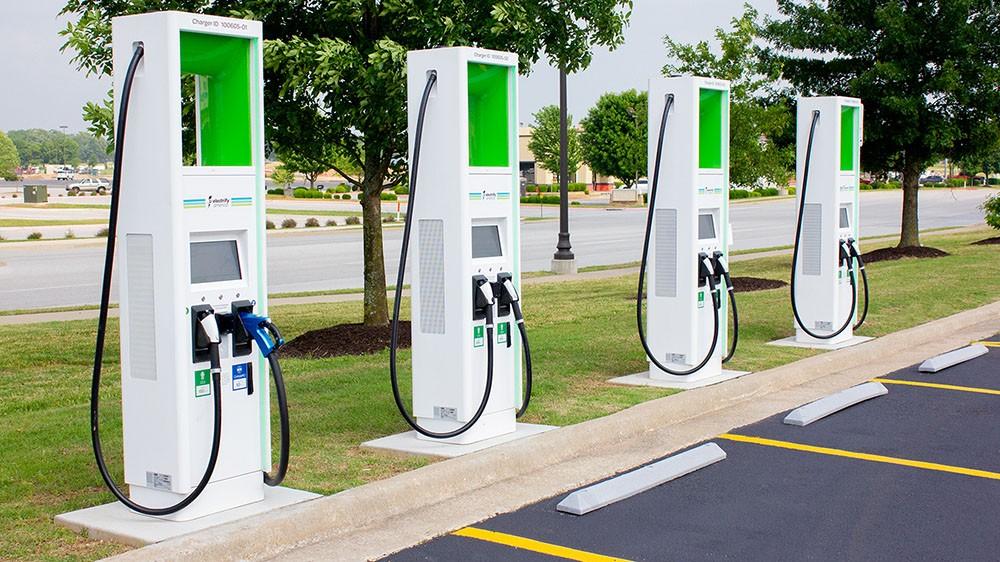Introduction
The electric vehicle charging station market is experiencing rapid growth, driven by technological advancements that are making charging faster, more efficient, and widely accessible. As EV adoption surges globally, innovations in charging technology are playing a crucial role in shaping the future of electric mobility. This article explores the key technological advancements driving the expansion of EV charging infrastructure and their impact on the market’s future.
Technological Advancements in EV Charging Stations
1. Ultra-Fast and High-Power Charging
One of the most significant advancements in EV charging is the development of ultra-fast charging stations. High-power chargers, capable of delivering 350 kW or more, significantly reduce charging times, making EVs more practical for long-distance travel. Companies like Tesla, Ionity, and Electrify America are investing in ultra-fast DC chargers that can replenish an EV’s battery to 80% in under 20 minutes.
2. Wireless Charging Technology
Wireless or inductive charging is emerging as a promising alternative to traditional plug-in chargers. This technology allows EVs to charge simply by parking over a charging pad embedded in the ground. Wireless charging solutions enhance convenience and can be particularly useful for autonomous vehicles, fleet operators, and urban infrastructure.
3. Vehicle-to-Grid (V2G) Integration
V2G technology enables two-way energy flow between EVs and the power grid, allowing vehicles to act as mobile energy storage units. This technology helps balance grid demand, improve energy efficiency, and provide cost savings to EV owners. Several pilot projects around the world are exploring the potential of V2G in enhancing grid resilience.
4. Smart Charging and Artificial Intelligence (AI)
AI-powered smart charging stations optimize energy distribution by adjusting charging speeds based on grid demand and electricity prices. Smart charging systems also integrate with mobile apps, allowing users to locate, book, and pay for charging sessions efficiently. AI-driven predictive maintenance is helping operators reduce downtime and improve station reliability.
5. Solar-Powered and Sustainable Charging Stations
The integration of renewable energy sources such as solar and wind power into EV charging infrastructure is becoming a growing trend. Solar-powered charging stations reduce reliance on fossil fuels and make EV charging more sustainable. Battery storage solutions are also being incorporated to ensure consistent energy availability.
6. Expansion of Charging Networks and Standardization
The standardization of charging connectors and protocols is enhancing the interoperability of charging stations across different manufacturers and regions. Fast-charging networks are expanding globally, with governments and private companies investing in nationwide charging corridors to support long-distance travel.

Impact of Technological Advancements on Market Growth
1. Increased EV Adoption
Faster and more accessible charging solutions are eliminating range anxiety, encouraging more consumers to switch to electric vehicles. Ultra-fast and wireless charging innovations are making EVs more convenient for everyday use.
2. Greater Infrastructure Investments
As new technologies emerge, governments and private players are investing heavily in EV charging infrastructure. Public-private partnerships are accelerating the deployment of smart and fast-charging stations worldwide.
3. Enhanced Grid Stability and Energy Efficiency
With the implementation of V2G and smart charging, EVs are becoming an integral part of energy management systems. These technologies contribute to grid stability and ensure efficient energy consumption.
4. Sustainability and Carbon Reduction
The integration of renewable energy sources with EV charging infrastructure is reducing the carbon footprint of transportation. Sustainable charging solutions are aligning with global efforts to combat climate change.
Conclusion
Technological advancements are revolutionizing the EV charging station market, making electric mobility more practical, efficient, and sustainable. From ultra-fast charging to AI-driven smart solutions, these innovations are driving market growth and ensuring a seamless transition to an electrified future. As investments in EV infrastructure continue to rise, the industry is poised for unprecedented expansion, shaping the next generation of transportation.



